© Turkuvaz Haberleşme ve Yayıncılık 2026
As Türkiye prepares to embrace 5G technologies, the contributions of Turkish engineers to the use of next-generation technologies are increasing. The growth of the local ecosystem reduces dependency on foreign sources while offering significant advantages in critical sectors like telecommunications.
One of Türkiye's leading telecommunications and technology companies, Türk Telekom, which supports the development of the local 5G ecosystem with its expertise and pioneering efforts, continues to form strategic partnerships to provide national solutions in this area.
At a ceremony this week on the sidelines of the world's biggest wireless technology conference in Spain, Türk Telekom announced that its subsidiary, Argela, will collaborate with local enterprises Etiya and i2i Systems on 5G and next-generation technologies.
"Under the leadership of Türk Telekom, our companies Argela, Etiya and i2i have made an agreement to develop and produce local and national products, especially in the transition to 5G. We congratulate all our companies, especially Türk Telekom," Transport and Infrastructure Minister Abdulkadir Uraloğlu said at the signing ceremony.
"Next year, we will receive the 5G signal. We have moved to tests and Türk Telekom has begun to expand its coverage in this regard. Hopefully, we will establish a 5G system in our country where local products are used much more," Uraloğlu noted.
Ümit Önal, CEO of Türk Telekom, emphasized that their investments have long been compatible with 5G, stating, "With the goal of transforming our country into a technology hub, we are continuously working to transfer our technological knowledge to national technologies and to increase the localization rate of 5G."
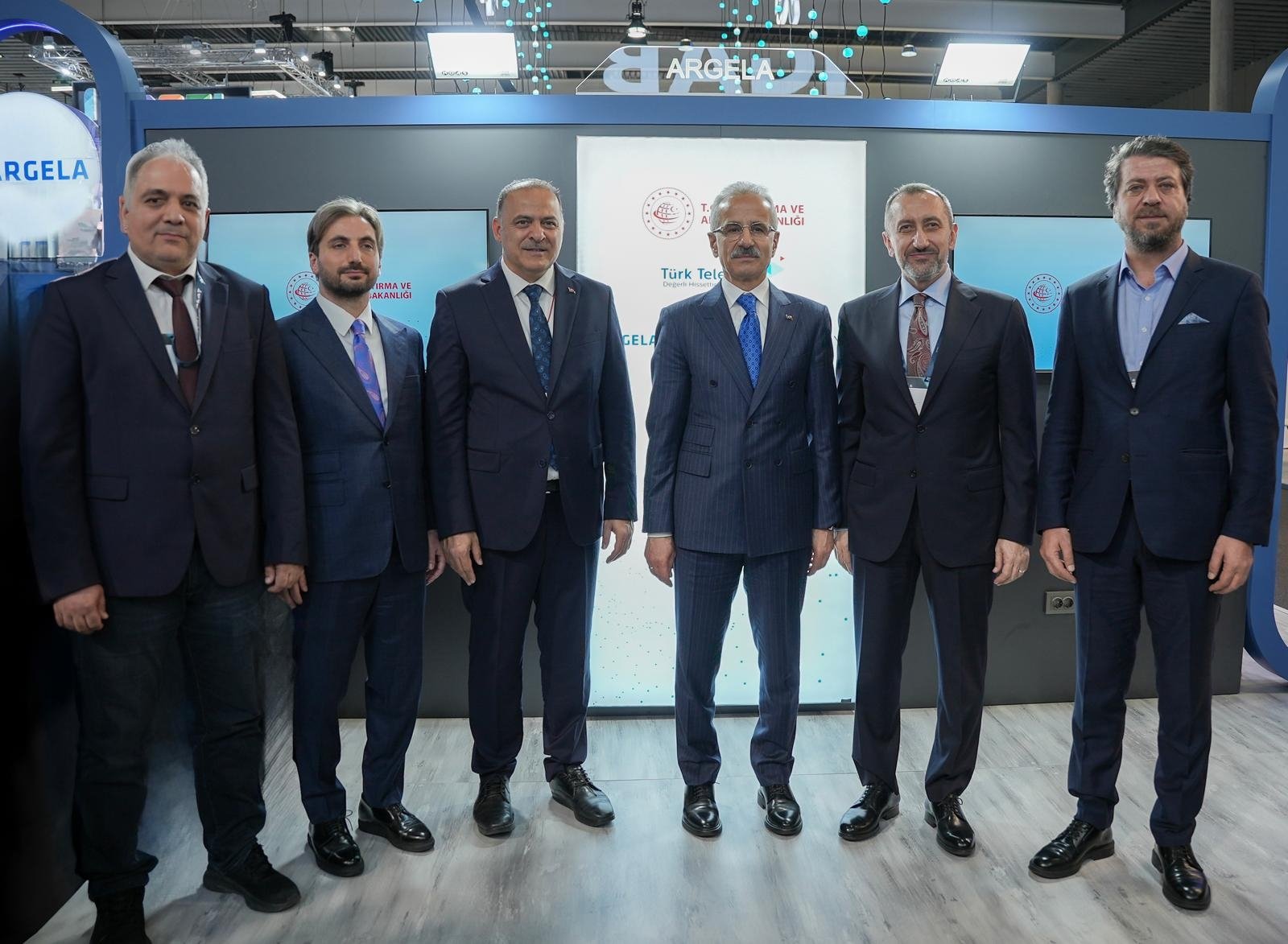
Türk Telekom announced that it will develop local 5G Network Slicing technologies with Argela and Etiya to meet the demands of industries and provide special connectivity services to end users.
The company aims to increase operational efficiency with the local and national charging solution, 5G Charging Function (CHF), developed by i2i Systems.
Türk Telekom conducted Europe's first comprehensive 5G-Advanced (5G-A) ship detection tests in real time.
This test, completed successfully using Integrated Sensing and Communication (ISAC) technology in collaboration with China's ZTE and utilizing the 5G-A Industrial Mobile Network at Istanbul Avcılar Kumport, allows for real-time detection and tracking of ships with 5G-A network signals without the need for additional equipment on the vessels.
This technology was introduced at this week's Mobile World Congress (MWC), one of the most prestigious events in the mobile technology industry, held annually in Barcelona, Spain.
Türk Telekom also introduced a smart city application using 5G-Advanced RedCap technology. In this trial, 5G RedCap technology was used in smart transportation applications for the first time in Europe.
By utilizing artificial intelligence and real-time video analytics technologies, successful results were achieved in the smart road process detection and driver tracking. This pioneering application lays the foundation for the future transportation technologies where vehicles communicate with each other.
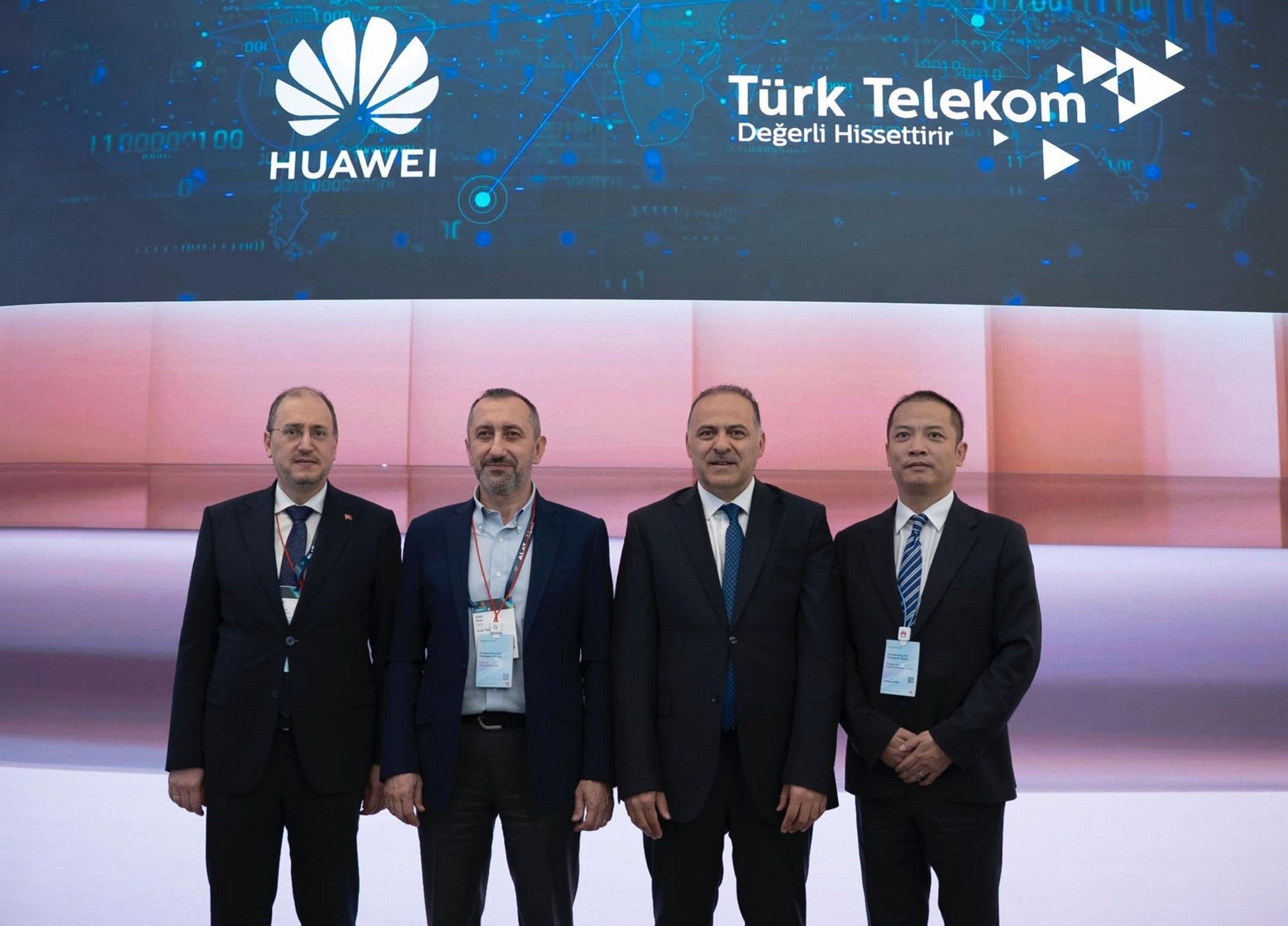
Türk Telekom, Huawei and local technology company Ithinka introduced the safe transportation application within the scope of smart city projects with the participation of Deputy Transport and Infrastructure Minister Ömer Fatih Sayan and Information Technologies and Communication Authority (BTK) President Ömer Abdullah Karagözoğlu.
In the trial, the road process detection and driver tracking services supported by artificial intelligence and video analytics were tested with the 5G-Advanced network in Istanbul Ümraniye.
"The application we have implemented forms the basis for the transportation technologies of the future. 5G-Advanced RedCap technology was tested in a smart transportation project for the first time in Europe," said Önal.
"With the innovative solutions we have implemented in new generation transportation, energy, environment, health and security, we contribute to the construction of high-quality, sustainable and safe cities."
From foldable and vertically expanding screens, smartwatches that monitor blood pressure to artificial intelligence-powered robots and smart cars that accelerate to 100 kph (62.14 mph) in just two seconds, many innovations stood out at this week's Mobile World Congress (MWC) in Barcelona.
The Huawei Mate XT Ultimate Design continues to revolutionize the industry by folding its screen not just in two, but three parts. This model, with one of the most innovative screens ever designed for smartphones, sets a new standard in flexibility and versatility.
Users can easily switch between different usage modes by folding the screen in three different ways.
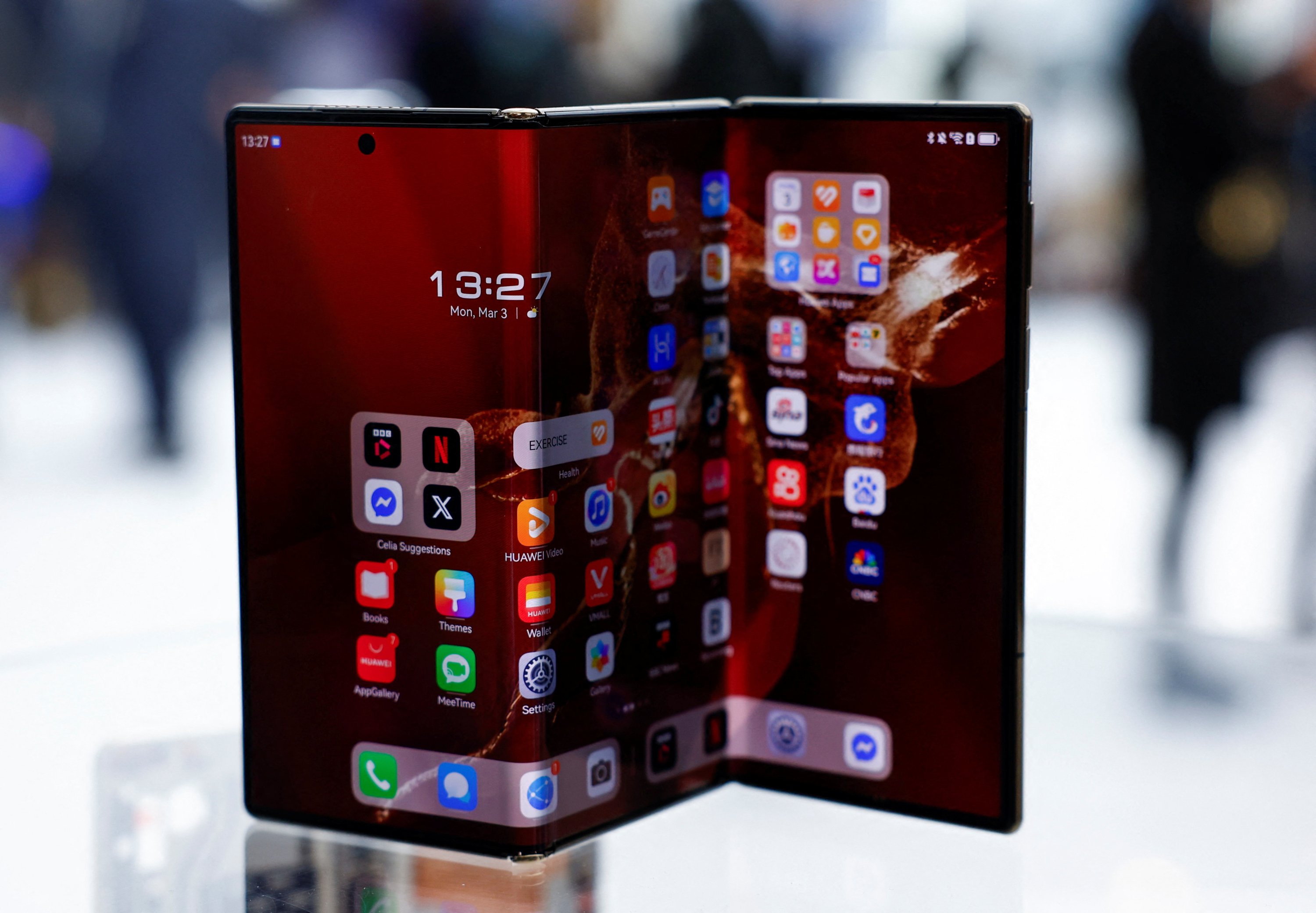
This unique folding technology enhances the device's portability while providing an ideal solution for users seeking a large screen experience. The triplefold screen expands multitasking capabilities, allowing the device to function both as a portable tablet and a smartphone.
In Türkiye, the Huawei Watch D2 has gained attention as a smartwatch that tracks blood pressure throughout the day and has received approval as a health device.
Expected to allow sharing blood pressure changes with doctors through the e-Nabız (e-Pulse) app, a digital platform that stores all health records, the Watch D2 works with all phone platforms, including Android, iPhone and Huawei.
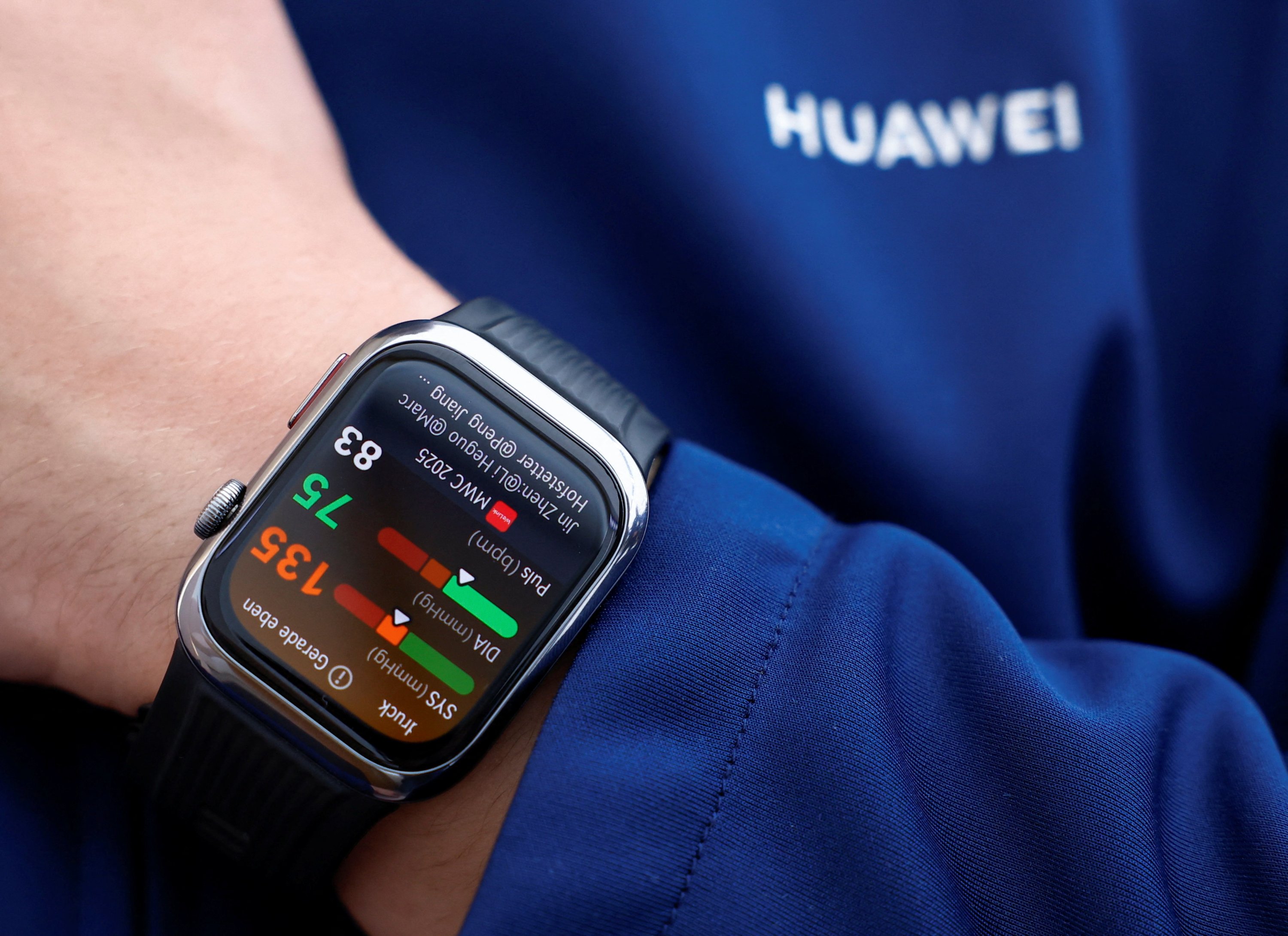
The Mate XT Ultimate Design stands out not only for its technological features but also for its design. The elegant and modern structure of the device offers a perfect blend of advanced technology and aesthetics.
The model, meticulously designed by Huawei, provides users with an aesthetically pleasing appearance without compromising functionality. When folded, the device becomes pocket-friendly and easy to carry. However, when the screen is unfolded, it offers a wide area, enhancing the experience of working, gaming, or watching videos.
The OLED screen of the Mate XT Ultimate Design measures 6.4, 7.9 and 10.2 inches in single, double and triple usage modes, respectively. When fully opened, the 3K resolution screen reaches 16:11 golden ratio dimensions, offering excellent values for both media consumption and productivity. The screen, capable of displaying over 1 billion colors with 10-bit color depth, also supports the P3 color gamut.
At the Mobile World Congress, Lenovo introduced its new AI-powered products and attracted the attention of technology enthusiasts from around the globe.
One of the most notable devices introduced by Lenovo was the ThinkBook "Flip" AI PC concept. With its 18.1-inch outward-folding OLED screen, this device allows users to adapt to different workflows, offering five different usage modes: clamshell, vertical, sharing, tablet and reading.
This concept device, which garnered great interest from technology enthusiasts, is equipped with an Intel Core Ultra 7 processor, 32GB LPDDR5X memory and PCIe SSD storage, optimizing AI-powered workflows and multitasking.
The Chinese electronics manufacturer turned automaker, Xiaomi, surprised everyone in the electric vehicle sector, having sold 180,000 of its luxury electric sedan SU7 cars in just 11 months. Now, the brand is raising the bar with the SU7 Ultra series.
The company, which has successfully transferred its experience from mobile phones to the mobility platform, continues to disrupt the automotive world. The Xiaomi SU7 series achieved significant success with over 25,000 deliveries in December 2024 alone.
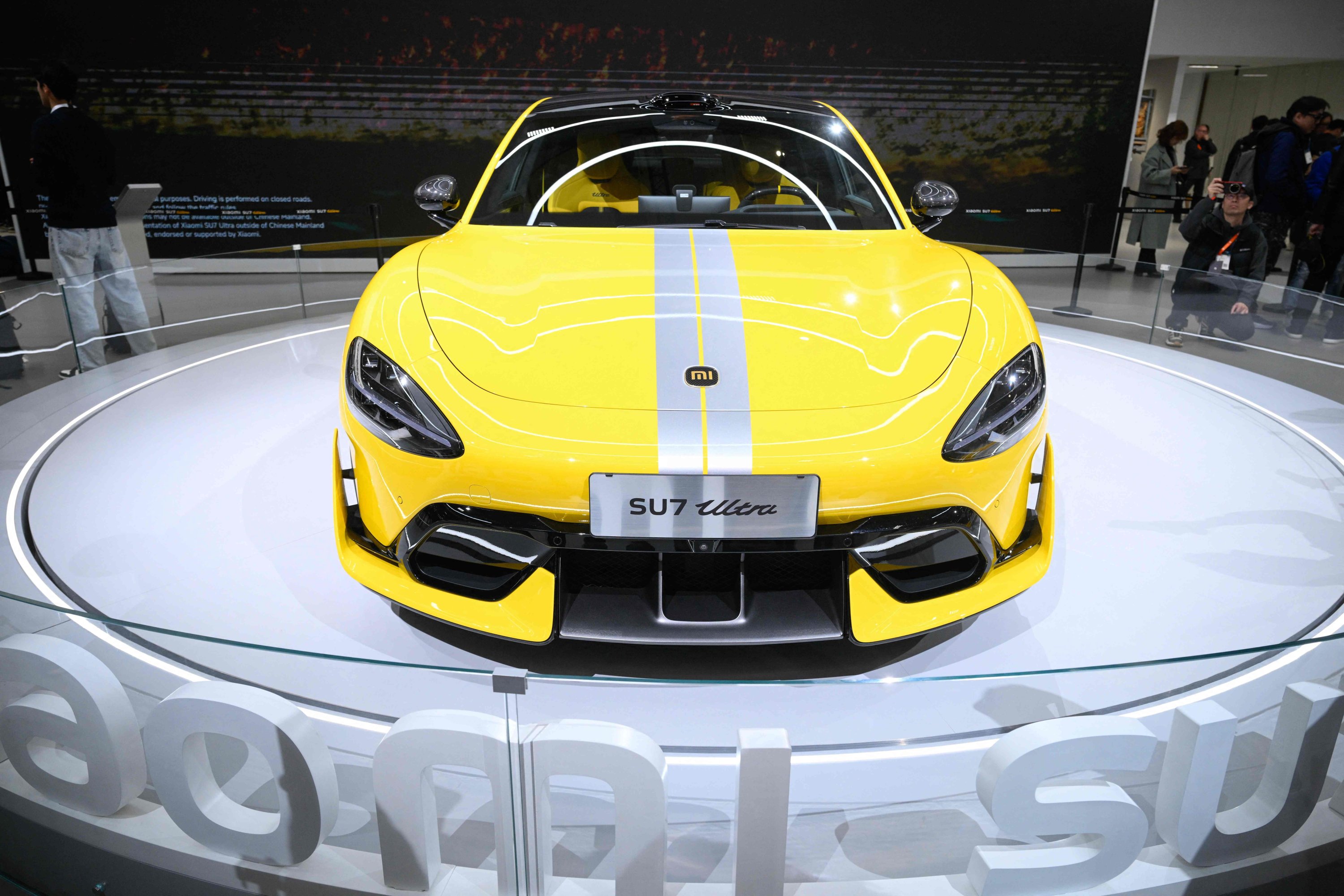
Throughout 2024, more than 135,000 cars were delivered, and Xiaomi has set a target of 300,000 deliveries for 2025.
Increasing its production capacity and sales network, Xiaomi operates 200 sales centers in 58 cities across China as of the third quarter of 2024. The consumer version of the SU7 Ultra, showcased at the Xiaomi MWC 2025 stand, combines superior performance with elegance. Designed to provide an excellent experience in all conditions, from professional race tracks to city driving.
AI-focused technology brand TECNO is partnering with Koç University, one of Türkiye's leading research educational institutions, to understand the aesthetic expectations of Turkish consumers in smartphone photography.
By taking its global research in multiskin tone imaging technology to a new level with this collaboration, TECNO aims to offer a more personalized and culturally compatible imaging experience to Turkish consumers by developing its Universal Tone technology.
Details of the collaboration with prestigious universities around the world were announced at an event held on the sidelines of this week's Mobile World Congress in Barcelona, Spain.
"As a leading player in the smartphone imaging sector, we believe this collaboration will enable us to integrate the latest research insights into our technology," said Fanyi Zhou, director of the image quality test laboratory and imaging quality test and evaluation department at TECNO.
"In this way, we can customize our camera technology to deliver stunning, true-to-life images that highlight the rich beauty diversity in Turkey while remaining true to individual identities."
Led by internationally recognized design researcher and Koç University Arçelik Research Center for Creative Industries (KUAR) director professor Aykut Coşkun, this project combines technology with user-centered design.
The study focuses on understanding the aesthetic sensitivities and skin tone preferences of Turkish consumers and will use surveys, semi-structured interviews and field research to explore portrait photography habits and preferences.
This will investigate behaviors and decisions related to unique photo-taking, editing and publishing experiences, issues encountered in the process and portrait photography experiences with TECNO smartphones.
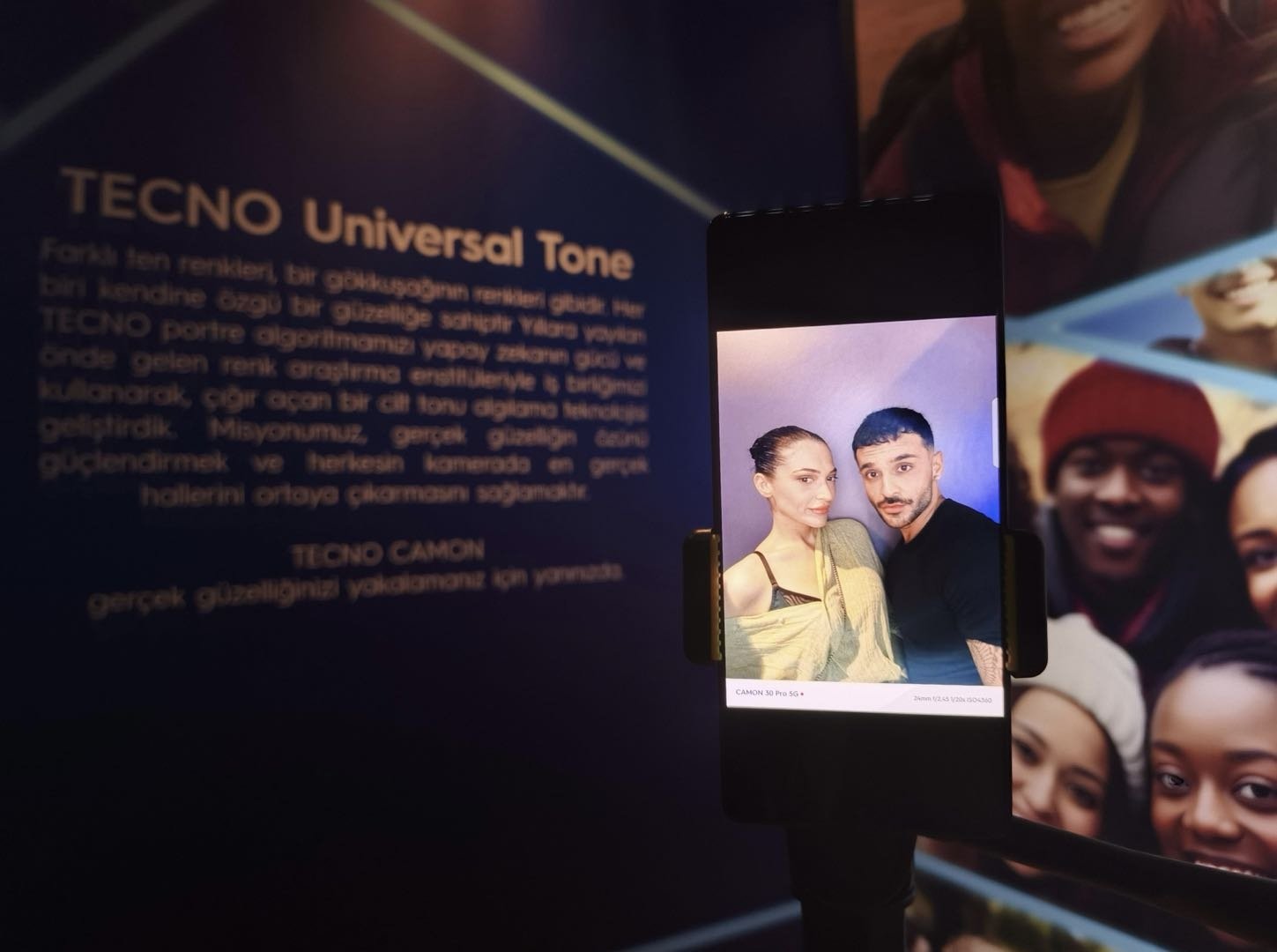
"This partnership is an exciting opportunity to bridge academic research with real-world technological innovations, professor Coşkun said of the project.
"Our research has the potential to redefine this process from the user's perspective by discovering user insights in smartphone photography and integrating these discoveries into technology development efforts," he noted.
TECNO's journey has been shaped by strategic partnerships with prestigious academic institutions, including the University of Leeds in the United Kingdom, Nanyang Technological University in Singapore and Dar Al-Hekma University in Saudi Arabia.
These partnerships, part of TECNO's "Glocalization" strategy, underscore the brand's commitment to adapting global innovations to meet the unique demands of local markets. Findings from this research will further advance TECNO's Universal Tone technology.
This innovative multiskin tone imaging solution, unveiled in 2023, continues to develop and will be integrated into the latest CAMON 40 series.
The technology consists of three main components: the Multi-Skin Tone Restoration Engine, the Local Adjustment Engine and the AI-Powered Computational Portrait Engine.
The Local Adjustment Engine adapts imaging solutions to various environmental factors such as lighting conditions, geomorphological landscapes and color temperatures, providing outputs compatible with local aesthetics.
The AI-Powered Computational Portrait Engine uses TECNO's proprietary algorithms to create personalized portrait imaging experiences that align with the cultural and aesthetic preferences unique to each region.
This partnership will provide users worldwide with imaging experiences tailored to their preferences and local aesthetics.
